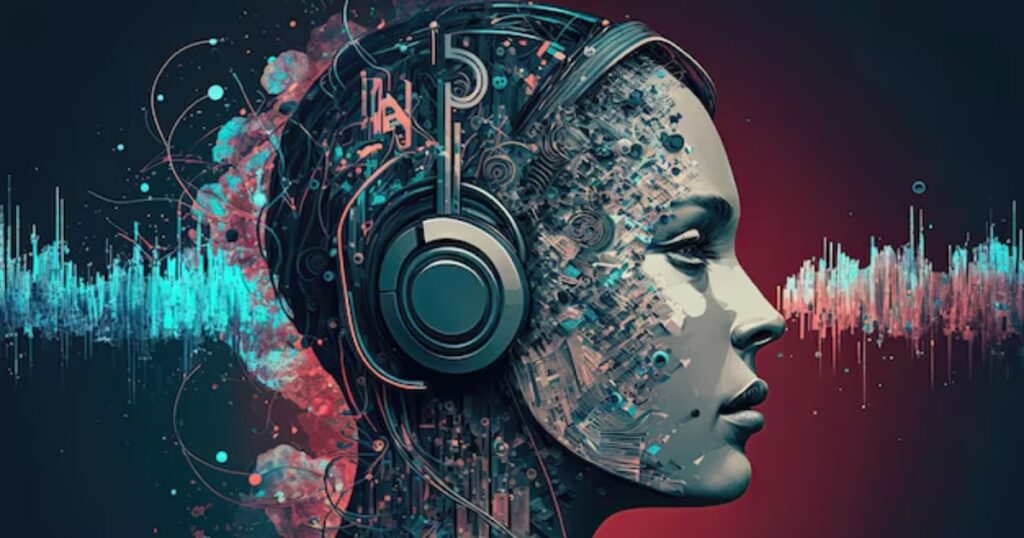The landscape of music creation is undergoing a seismic
shift in 2024, largely due to the rapid advancements in artificial intelligence
(AI). Musicians, producers, and composers are now exploring uncharted
territories as AI-powered tools redefine how music is conceptualized, composed,
and produced. Let’s dive into how AI is transforming the music industry and
shaping the future of music creation.
AI in Music Composition
AI-driven platforms are making it possible for creators to
compose music faster and with greater innovation. These tools can generate
melodies, harmonies, and even complete songs in a variety of genres. This
capability democratizes music creation, enabling beginners and seasoned
professionals alike to explore new creative possibilities.
Notable AI Tools for Music Composition:
- AIVA
(Artificial Intelligence Virtual Artist): AIVA is a pioneering AI
composer that creates original compositions for filmmakers, game
developers, and independent musicians. It offers pre-set styles like
classical, electronic, and jazz. Explore
AIVA - Amper
Music: Ideal for creators who want royalty-free music, Amper allows
users to customize tracks by choosing mood, style, and instrumentation. Try Amper Music - Endlesss:
This collaborative music-making platform uses AI to assist in live jamming
sessions, providing ideas and enhancements in real-time. Discover Endlesss
AI in Music Production
Music production has also seen a significant boost with AI
tools that streamline tasks like mixing, mastering, and sound design. AI can
analyze audio tracks and apply complex audio processing techniques that
traditionally required hours of manual work.
Popular AI Tools for Music Production:
- LANDR:
LANDR is an AI-powered mastering tool that makes professional-quality
audio mastering accessible to everyone. It also offers distribution and
collaboration features. Visit LANDR - iZotope
Ozone: iZotope’s Ozone uses AI to provide intelligent mastering
assistance, ensuring your tracks are polished and balanced. Learn About
iZotope Ozone - Orb
Producer Suite: This AI-assisted tool generates MIDI patterns, chord
progressions, and melodies tailored to your project’s needs. Check Out Orb Producer Suite
AI in Sound Design
AI has opened new avenues in sound design, enabling creators
to craft unique audio textures and soundscapes. With AI, even non-musicians can
experiment with synthesizers and sound effects to produce high-quality audio.
Leading AI Tools for Sound Design:
- ROLI
Studio: ROLI Studio combines AI with advanced synthesizers to create
expressive soundscapes for electronic music. Explore
ROLI Studio - Adobe
Sensei: Integrated into Adobe Audition, Adobe Sensei uses AI to
simplify complex audio editing and restoration tasks. Learn About Adobe Sensei - Melodrive:
This AI-powered music engine generates adaptive music for games, VR, and
interactive experiences. Discover Melodrive
AI in Music Collaboration
AI is also transforming how musicians collaborate. Real-time
AI tools allow creators to jam virtually, regardless of their location. These
platforms enable seamless integration of ideas and creativity.
Noteworthy AI Tools for Collaboration:
- Soundtrap
by Spotify: This online DAW (Digital Audio Workstation) uses AI to
suggest harmonies, rhythms, and more during collaboration. Visit Soundtrap - BandLab:
BandLab’s AI tools allow for real-time collaboration and provide song idea
generators to jumpstart projects. Check
Out BandLab - Boomy:
Boomy uses AI to help users create and share songs instantly, making it
perfect for collaborative and experimental projects. Explore Boomy
Challenges and Ethical Considerations
Despite its benefits, the integration of AI into music
creation raises challenges and ethical questions. Key concerns include:
- Copyright
Issues: Who owns the rights to music generated by AI? - Authenticity:
Will AI-generated music dilute human artistry? - Bias
in AI Models: Ensuring AI tools are inclusive and unbiased.
These challenges underscore the need for balanced regulation
and ethical frameworks as AI becomes more ingrained in the music industry.
Resources and Further Reading
If you’re curious about diving deeper into AI and music
creation, here are some valuable resources:
- AIVA
- Amper
Music - Endlesss
- LANDR
- iZotope Ozone
- Orb Producer Suite
- ROLI Studio
- Adobe Sensei
- Melodrive
- Soundtrap
- BandLab
- Boomy
In conclusion, AI is not just a tool but a transformative
force in music creation. While it empowers musicians with new possibilities, it
also challenges us to think about the essence of creativity and the role of
technology in the arts. The future of music is here, and it’s driven by the
powerful symphony of human ingenuity and artificial intelligence.


.jpg)

.jpg)
.jpg)